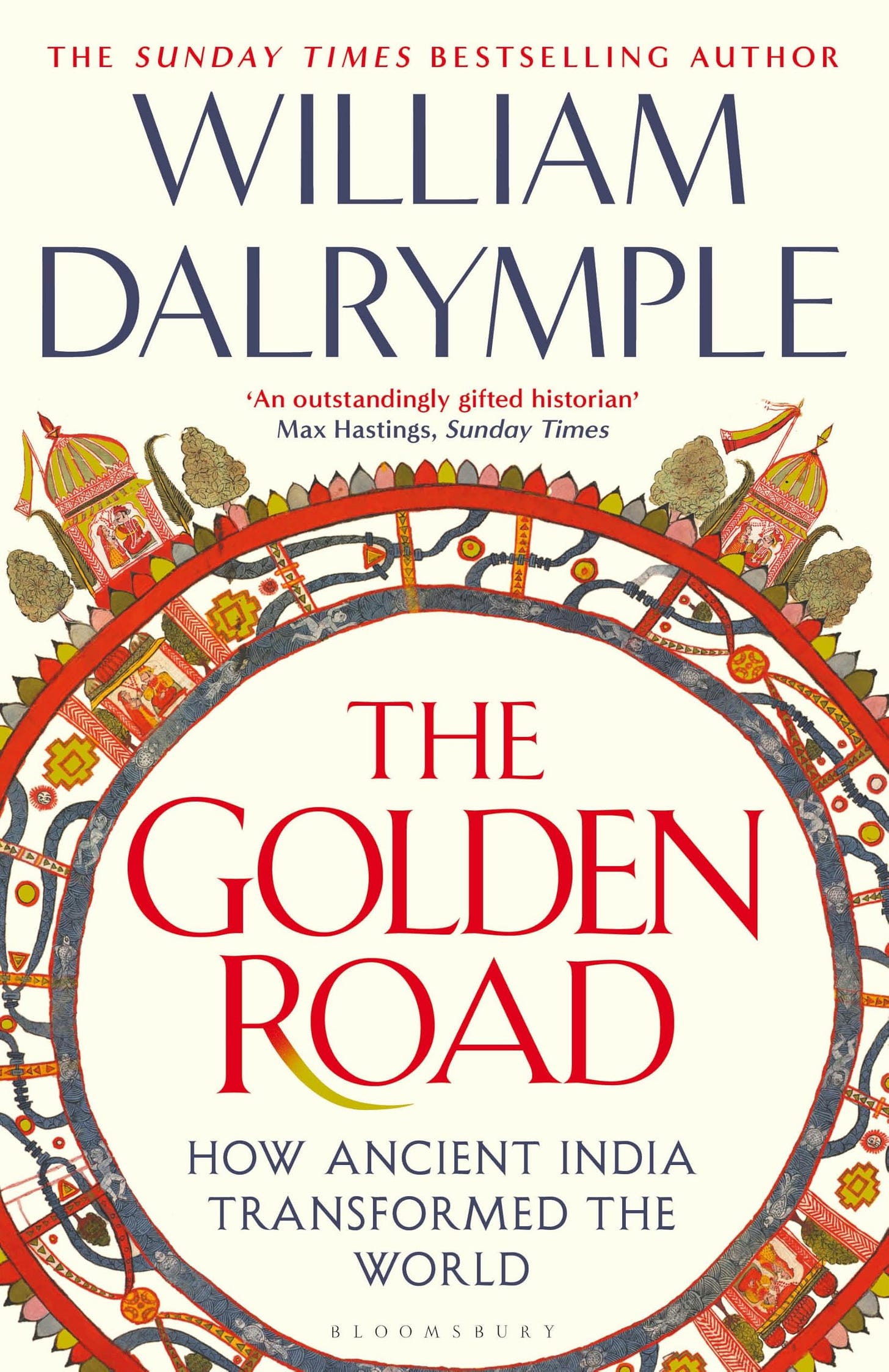It was in the 1870s that the term Silk Route was first coined. It was beneficial for the Chinese to take that idea and run with it in the 21st century.
In this book, William Dalrymple argues that the Silk Road never existed. Instead, what existed was The Golden Road from India, to China, Europe, Middle East and South East Asia.
Of all the Roman coin hoards that have been found across the world, none have been found in China, instead you find all the coin hoards in South India in regions that are the states of Tamil Nadu, Kerala and Karnataka.
Unlike most empires across the world, India was not an empire of the sword but an empire of the spirit.
The first export from India was Buddhism, which found its way out of India through the Hindu Kush mountains into what is modern day Afghanistan and then moved across the Tibetan plateau to reach China and even go as far as Japan.
At the same time, India is blessed with the cyclical monsoon winds that blow into the lands in summer and outwards into the sea during winter. The Southern dynasties took advantage of this and sent trade missions across the seas into South East Asia as well as the Middle East.
India was also the centre of knowledge and culture. Great mathematicians such as Aryabhata and, building on that work, Bhramagupta created the foundations of modern Algebra. In what is modern day Baghdad, the Barmakid dynasty, which was in power, sought out Indian knowledge. They invited Indian scholars to their lands to help teach them mathematics. As the influence of Islam spread across the region, maths spread alongside it. All the way from Baghdad to Al-Andalus (a.k.a. Andalusia). This knowledge found its way into Europe thanks to the son of an Italian customs official who was called Leonardo of Pisa, more commonly known as Fibonacci. Incidentally, it was this very knowledge of numbers that made the East India Company possible.
Southern India was never in the spell of Buddhism, and Hinduism remained strong in the land. As the centuries went by, those kings conquered vast portions of South East Asia. They brought their religion along with them. Angkor Wat is the largest temple complex in the world, also happens to be a Hindu Temple.
India was the critical node in all the movements of goods and knowledge across the world. Even Pliny the Elder complained about India being the sink for all the gold of Rome.
The Europeans set out to find the new world in the last 1400s. They were looking for India, not by chance. The land they found was called West-Indies, again not by chance.
If all roads led to Rome, from there, they definitely led to India.
This is the rightful place of India in the world, which has been deftly erased by Chinese adoption of the Silk Road. Also, Indians have done a poor job of highlighting their own history.
An incredible book that every Indian should read.


